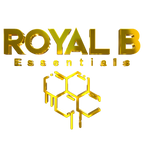The Historic Influence of Bees on Human Wellbeing
Introduction In the cosmic tapestry of human history and health, the humble bee has played a role as significant as any celestial body. More than mere pollinators, these industrious insects have been pivotal to our medicinal practices and nutritional sustenance. Join us on a journey through time, exploring the indispensable contributions of bees and their products to our wellbeing.
The Ancient Egyptians and Honey’s Healing Prowess Our odyssey commences in Ancient Egypt, where the Nile nurtured a civilisation of remarkable advancements. The Egyptians, pioneers in many fields, documented honey as a medicinal marvel. Its antibacterial properties made it invaluable in wound care and embalming. The Ebers Papyrus, dating back to 1550 BC, lists honey in a staggering 500 remedies (Molan, 1999), a testament to its revered status in ancient pharmacology.
Grecian and Roman Advocacy for Bee Products In Greece, Hippocrates, the revered ‘Father of Medicine,’ advocated honey for diverse ailments, recognising its therapeutic spectrum (Ransome, 1937). The Romans, under the guidance of Pliny the Elder, echoed this sentiment in ‘Naturalis Historia,’ highlighting honey's role as a versatile health elixir.
Ayurveda and Traditional Chinese Medicine: Symbiosis with Honey Venturing East, Ayurveda, India’s ancient medicinal system, esteemed honey for its equilibrium-restoring properties. The Sushruta Samhita, a cornerstone text, venerates honey in balancing the body’s humours (Dash, 1991). Traditional Chinese Medicine (TCM) also integrates honey, often in herbal concoctions, to amplify healing (Ni, 1995).
Medieval Europe: Monasteries as Centres of Beekeeping In medieval Europe, monasteries were beacons of knowledge and healing. Monks, adept in various sciences, often kept bees, using honey as a sweetener and medicinal ingredient (Jones, 1987).
Apitherapy: The Healing Sting Beyond honey, apitherapy, which utilises bee venom, has been a fixture in various traditional healing practices, believed to mitigate conditions like arthritis (Bogdanov, 2016).
The Symbolic and Spiritual Significance of Bees Bees weren’t just biological entities; they held a revered, almost mystical status in many cultures. In Egyptian mythology, bees were thought to originate from the tears of Ra, symbolising regeneration and immortality.
Modern Perspectives and Sustainability In the contemporary realm, the significance of bees endures. The trend towards organic and natural health products has rekindled interest in bee-derived substances. However, this resurgence brings a responsibility to practice sustainable and ethical beekeeping, safeguarding these vital pollinators (Smith, 2020).
Conclusion Our historical voyage reveals that bees have been more than insects; they have been architects of human health and survival. From Ancient Egypt to present-day health aisles, their contributions are monumental. It behoves us to protect and revere these tiny health guardians, not just for their bounties but for their irreplaceable role in Earth’s life tapestry.
References
- Molan, P. C. (1999). "Journal of the Royal Society of Medicine."
- Ransome, H. M. (1937). "The Sacred Bee in Ancient Times and Folklore."
- Dash, V. B. (1991). "Fundamentals of Ayurvedic Medicine."
- Ni, M. (1995). "The Yellow Emperor's Classic of Medicine."
- Jones, R. (1987). "The History of Bees and Beekeeping."
- Bogdanov, S. (2016). "Bee World."
- Smith, K. (2020). "Journal of Sustainable Agriculture."
